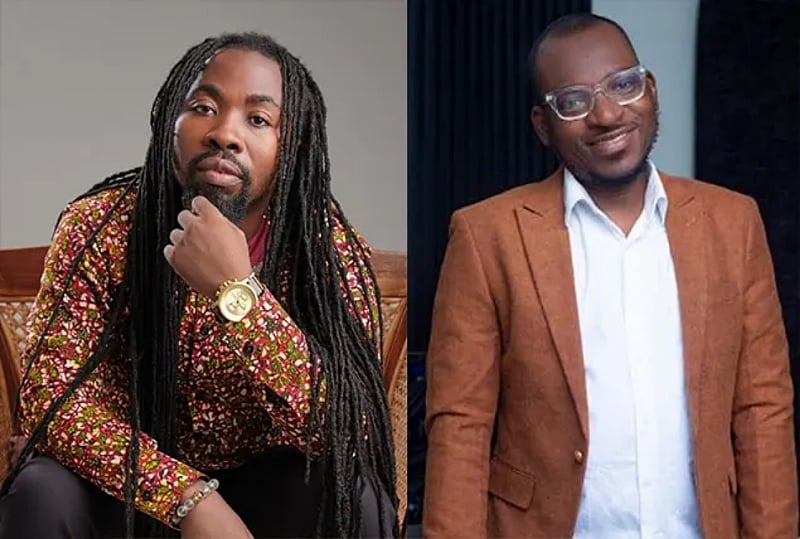The Ghanaian music scene was recently embroiled in a public dispute over songwriting credits for Sarkodie’s poignant track, “Hope,” featuring the iconic hiplife artist, Obrafour. The controversy erupted when renowned sound engineer, Possigee, shared a video on social media discussing the prevalent practice of ghostwriting in the music industry. While illustrating his point, Possigee cited Sarkodie’s “Hope” as an example, asserting that Sarkodie had penned a portion of Obrafour’s verse on the track. This claim ignited a fiery exchange between Obrafour and Possigee, played out in the comment section of the video.
Obrafour vehemently refuted Possigee’s assertion, expressing his displeasure at the implication of his artistic integrity being compromised. He challenged Possigee to name any instances where he had employed a ghostwriter, either for himself or Sarkodie. The legendary artist accused Possigee of “clout-chasing,” suggesting that the sound engineer was fabricating the story to gain attention. Obrafour’s strong denial set the stage for a back-and-forth exchange that quickly escalated in tone and intensity.
Possigee defended his claim, emphasizing his presence in the studio during the recording of “Hope.” He argued that his firsthand involvement gave him unique insight into the song’s creation process. Reiterating his claim, Possigee maintained that he had recorded Sarkodie and the choir, implying his awareness of who contributed what to the final product. He also denied seeking clout, emphasizing his established reputation in the music industry. Despite his explanation, Possigee’s initial assertion remained a point of contention.
Obrafour remained unconvinced by Possigee’s defense. He doubled down on his denial, specifically questioning Possigee’s claim that Sarkodie wrote the hook of the song. He urged Possigee to verify his information with Sarkodie directly before making public statements. This demand for fact-checking further fueled the online debate, drawing the attention of fans and industry insiders alike. The disagreement highlighted the sensitive nature of songwriting credits and the potential for misunderstandings in collaborative musical projects.
The public spat between Obrafour and Possigee underscores the complex dynamics within the music industry, particularly regarding creative ownership and collaboration. While ghostwriting is a common practice, the public revelation of such arrangements can often lead to disputes, especially when established artists are involved. The “Hope” controversy raises questions about the transparency and ethical considerations surrounding songwriting credits in an era where collaborative songwriting is increasingly prevalent.
This incident serves as a reminder of the importance of clear communication and mutual respect among artists and collaborators. It highlights the potential for misinterpretation and the need for accurate representation of creative contributions. The controversy surrounding “Hope” provides a valuable lesson for the music industry on the importance of establishing clear agreements regarding songwriting credits to avoid future conflicts and protect the artistic integrity of all involved. While the details of the “Hope” creation remain disputed, the public exchange between Obrafour and Possigee underscores the ongoing conversation about authorship and creative ownership in the music industry.














